
We are constantly bombarded with terms like PCR, ocean waste, and bio-based, but what does it all mean? Is it really doing our planet any good? Should you make the switch? Let's take a simplistic look at the options available to your brand and how to determine what is best for you.
Deciphering the Terms
Historically, plastic packaging for cosmetics has been made from virgin plastic. This means the plastic produced comes from fresh, new starting materials. Conventional plastic comes from petroleum-derived feedstock that chemically reacted to produce different polymers. You can usually look at the bottom of a piece of plastic and see various designators like 1, 2 and 5, which indicate the type of plastic polymer it is. All plastics production emits greenhouse gases, and the type of plastic will determine how much is emitted.
In the effort to create a circular economy, plastic producers have tried to create new plastic products out of old, recycled plastic products. This is called post-consumer recycled plastic, or PCR plastic. The amount of greenhouse gases produced from manufacturing PCR plastic is lower than virgin plastic because it doesn't require petroleum-based feedstock. It is using plastic that already exists. PCR plastic technology has advanced quite a bit over the years; the way recycling is sorted and processed, it is difficult to get pure starting material. It can contain many impurities or have drastic color variations. When creating recycled plastic material, it is important to use the same number of plastics from all sources. The color of plastic is a different story. Some plastics are very dark, which contaminates lighter plastic.
This story is from the November - December 2022 edition of Making Soap, Cosmetics & Candles.
Start your 7-day Magzter GOLD free trial to access thousands of curated premium stories, and 9,000+ magazines and newspapers.
Already a subscriber ? Sign In
This story is from the November - December 2022 edition of Making Soap, Cosmetics & Candles.
Start your 7-day Magzter GOLD free trial to access thousands of curated premium stories, and 9,000+ magazines and newspapers.
Already a subscriber? Sign In
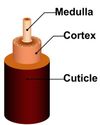
Soap vs. Syndet Shampoo Bars
If you have been making soap for any length of time, you’ve most likely heard of shampoo bars. If you have not heard of them, they are hard bars of soap used to clean hair. They are an alternative to the more common liquid shampoos sold in stores in plastic bottles.
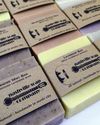
An Entrepreneur's Packaging Evolution
Becky Strasburger of Nashville Soap Company nashvillesoapcompany.com creates one hundred percent handcrafted, all natural and vegan-friendly soaps, candles and body care products, crafted in small batches in Nashville, Tennessee.

Marketing and Goat Milk in Soap
The restorative properties of goat milk soap and lotion are undisputed, and the benefits of smooth, clean skin are a bonus of soaps made with goat milk.
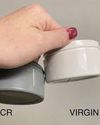
What Sustainable Packaging Means to You
Sustainability is more important than ever, but it is also more confusing than ever.

The Little Book of Beldi: A Modern Take on a Classic Soap.
Making Soap, Cosmetics & Candles magazine readers, please meet Rebecca K. Wright.

Holiday Products and Packaging
Ah, November and December ... Did you know that a total of 13 major holidays are celebrated within these months worldwide?
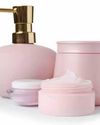
Packaging Breakdown: What to Consider When Choosing Product Packaging
Product packaging has always been important to a cohesive product line, but do you know what it takes to be successful?
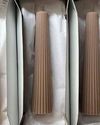
Candle Packaging for Small Businesses
You created a beautiful candle. You designed, tested, and made it.
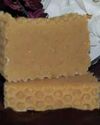
Making and Packaging Honeycomb Soap
My best-selling soap to this day is a soap with beeswax and honey that I call Honeycomb.